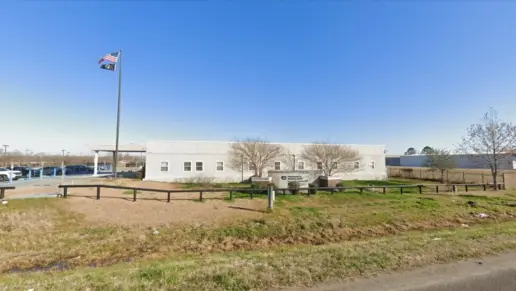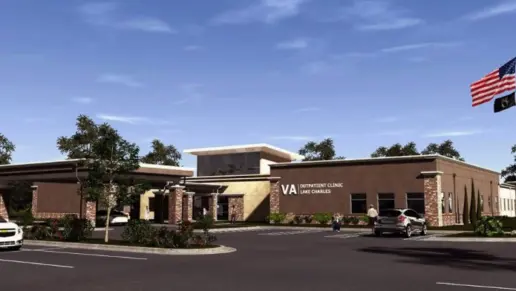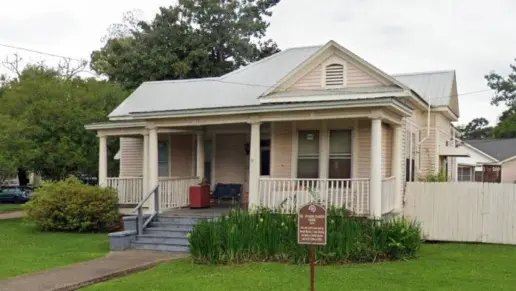My daughter is a patient there. My wife calls and talk to the nurses. They’ve lied to her on serval times! They told my wife that they gave my daughter medication. When we talked to my daughter. She stated that they never gave her anything. They put her in a position for h ...
About Our Lady of Lake Regional Medical Center – Tau Center
Located in Baton Rouge, LA, Our Lady of Lake Regional Medical Center’s Tau Center is a mental and behavioral health treatment center for adolescents and adults. Their age-specific services include inpatient treatment, outpatient programs, and aftercare support. Specialized services are available for seniors and clients with co-occurring conditions.
The Inpatient Adult Psychiatric Program serves adults with mental illness and addiction issues. Staff includes psychiatrists, nurses, social services counselors, activity therapists, and pastoral counselors. The facility is equipped to treat co-occurring diagnoses, providing crisis stabilization for those suffering from both addiction and emotional issues.
Day treatment is available for adults who are experiencing depression, grief, ADHD, stress, and panic anxiety disorders. The center takes a holistic approach to the treatment of these issues.
Adult intensive services offer more treatment hours per week than general outpatient treatment. You’ll undergo an initial assessment and diagnosis upon arrival at the center, and the staff recommends the appropriate level of care.
The Inpatient Adolescent Center provides crisis stabilization in a safe and nurturing environment. Treatment addresses co-occurring disorders and includes psychiatric evaluation and services for depression, anger, thoughts of suicide, anxiety, panic attacks, ADD, behavioral problems, family conflicts, and alcohol or drug abuse. Treatment methods include individual, group, and family therapy. Staff includes board certified child and adolescent psychiatrists, nurses, social service workers, activity therapists, and pastoral counselors.
Their Geriatric Behavioral Center specializes in the psychological and physical needs of adults 55 years or older. The environment is designed to help you make steps toward recovery. The Center admits those who are suffering from depression, anxiety, agitation, sleep or appetite disturbances, confusion, or psychosis.
They work with most private insurance providers. Out of network benefits can vary, so contact your individual provider to verify coverage.
Facility Overview
Latest Reviews
Rehab Score
Gallery
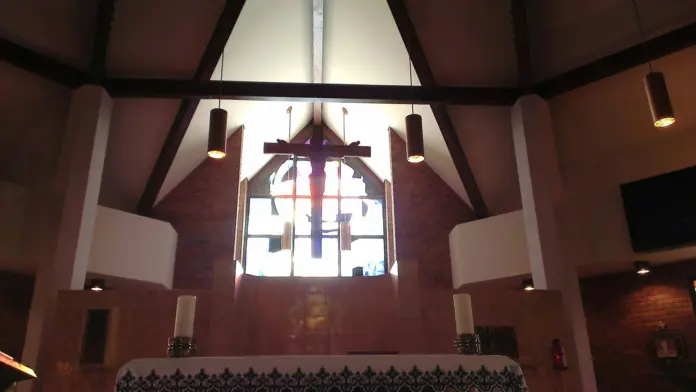
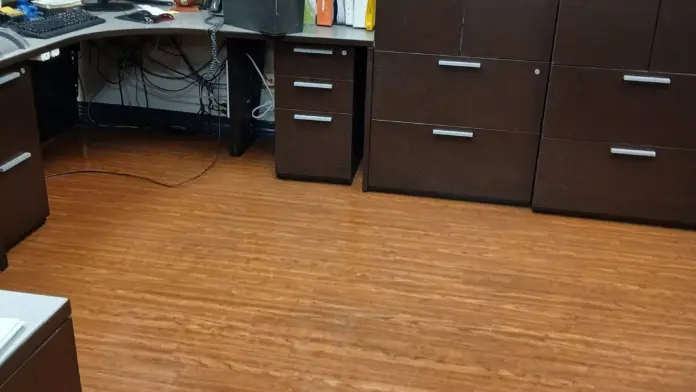
Location
Accepted Insurance
Other Forms of Payment
Private insurance refers to any kind of healthcare coverage that isn't from the state or federal government. This includes individual and family plans offered by an employer or purchased from the Insurance Marketplace. Every plan will have different requirements and out of pocket costs so be sure to get the full details before you start treatment.
Self-pay involves paying for treatment out of your own pocket. You can use savings or credit, get a personal loan, or receive help from family and friends to fund your treatment. If you don't have insurance or your insurance plan doesn't cover a specific program, self-pay can help ensure you still get the care you need.
Financial aid can take many forms. Centers may have grants or scholarships available to clients who meet eligibility requirements. Programs that receive SAMHSA grants may have financial aid available for those who need treatment as well. Grants and scholarships can help you pai for treatment without having to repay.
Medicare is a federal program that provides health insurance for those 65 and older. It also serves people under 65 with chronic and disabling health challenges. To use Medicare for addiction treatment you need to find a program that accepts Medicare and is in network with your plan. Out of pocket costs and preauthorization requirements vary, so always check with your provider.
Medicaid is a state based program that helps lower-income individuals and families pay for healthcare. Medicaid covers addiction treatment so those enrolled can use their coverage to pay for rehab. When a program accepts Medicaid the client often pays very little or nothing out of their own pocket.
Military members, veterans, and eligible dependents have access to specific insurance programs that help them get the care they need. TRICARE and VA insurance can help you access low cost or no cost addiction and mental health treatment. Programs that accept military insurance often have targeted treatment focused on the unique challenges military members, veterans, and their families face.
Addiction Treatments
Levels of Care
Treatments
Many of those suffering from addiction also suffer from mental or emotional illnesses like schizophrenia, bipolar disorder, depression, or anxiety disorders. Rehab and other substance abuse facilities treating those with a dual diagnosis or co-occurring disorder administer psychiatric treatment to address the person's mental health issue in addition to drug and alcohol rehabilitation.
Mental health rehabs focus on helping individuals recover from mental illnesses like bipolar disorder, clinical depression, anxiety disorders, schizophrenia, and more. Mental health professionals at these facilities are trained to understand and treat mental health issues, both in individual and group settings.
Programs




Clinical Services
Cognitive Behavioral Therapy (CBT) is a therapy modality that focuses on the relationship between one's thoughts, feelings, and behaviors. It is used to establish and allow for healthy responses to thoughts and feelings (instead of unhealthy responses, like using drugs or alcohol). CBT has been proven effective for recovering addicts of all kinds, and is used to strengthen a patient's own self-awareness and ability to self-regulate. CBT allows individuals to monitor their own emotional state, become more adept at communicating with others, and manage stress without needing to engage in substance abuse.
Dialectical Behavior Therapy (DBT) is a modified form of Cognitive Behavioral Therapy (CBT), a treatment designed to help people understand and ultimately affect the relationship between their thoughts, feelings, and behaviors. DBT is often used for individuals who struggle with self-harm behaviors, such as self-mutilation (cutting) and suicidal thoughts, urges, or attempts. It has been proven clinically effective for those who struggle with out-of-control emotions and mental health illnesses like Borderline Personality Disorder.
Group therapy is any therapeutic work that happens in a group (not one-on-one). There are a number of different group therapy modalities, including support groups, experiential therapy, psycho-education, and more. Group therapy involves treatment as well as processing interaction between group members.
In individual therapy, a patient meets one-on-one with a trained psychologist or counselor. Therapy is a pivotal part of effective substance abuse treatment, as it often covers root causes of addiction, including challenges faced by the patient in their social, family, and work/school life.
In Louisiana, trauma therapy helps you explore the impact that a traumatic event has had on your life. You can experience emotional and physical responses if you witness or experience a traumatic event. Your therapist guides you in processing the trauma and then developing coping strategies that improve your quality of life.
Whether a marriage or other committed relationship, an intimate partnership is one of the most important aspects of a person's life. Drug and alcohol addiction affects both members of a couple in deep and meaningful ways, as does rehab and recovery. Couples therapy and other couples-focused treatment programs are significant parts of exploring triggers of addiction, as well as learning how to build healthy patterns to support ongoing sobriety.
Research clearly demonstrates that recovery is far more successful and sustainable when loved ones like family members participate in rehab and substance abuse treatment. Genetic factors may be at play when it comes to drug and alcohol addiction, as well as mental health issues. Family dynamics often play a critical role in addiction triggers, and if properly educated, family members can be a strong source of support when it comes to rehabilitation.
Nutrition therapy is a holistic therapy that allows you to relearn healthy habits you have lost during active addiction. Therapists help you identify the best foods that will give your body the nutrients it needs for recovery and daily living.
Experiential therapy is a form of therapy in which clients are encouraged to surface and work through subconscious issues by engaging in real-time experiences. Experiential therapy departs from traditional talk therapy by involving the body, and having clients engage in activities, movements, and physical and emotional expression. This can involve role-play or using props (which can include other people). Experiential therapy can help people process trauma, memories, and emotion quickly, deeply, and in a lasting fashion, leading to substantial and impactful healing.
Amenities
-
Private Transportation
-
Residential Setting
-
Private Rooms
Staff

President & CEO

Executive VP & CFO

Executive VP & Chief Nursing Officer
Contact Information
8080 Margaret Ann Avenue
Baton Rouge LA, 70809





